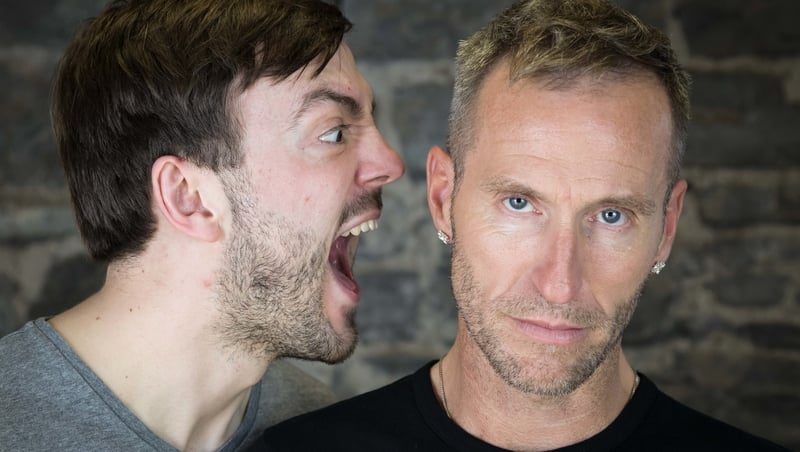Playwright and director Brian Burns writes for Culture about his acclaimed play Men At Play, which returns to the stage in November, for dates in Dublin and Galway.
"So maybe we’re not so different," declares straight brother Fionn to his gay brother Fergus, in one scene from Men At Play. The two have been arguing about the toxic masculinity that pervaded the social scene in rural Donegal in their heyday, and recalling a "mad night out in Killybegs".
Men At Play has many themes, but the principal one concerns the performativity of masculinity and the difficulties all men face – gay or straight – in living up to the ideals of the gender inscribed upon them at birth, and reinforced by their families and society.
"Oh my God," Fergus exclaims dismissively, "the nicknames, the drinking, the obscenities, the obsession with sexual conquest …" before catching himself, realising that this could indeed be a fitting description for a night out on the urban gay scene. It's a poignant moment in a play which confronts and challenges both gay and straight stereotyping and ultimately explores the performative nature of gender itself - in this instance masculinity.
As a gay man who grew up in rural Ireland from the '70s to '90s, for several years I had been toying with an idea to devise a piece of theatre which would echo my own experience, and those of other men from similar backgrounds – stories which I felt were missing from the Irish theatre world.

A shorter version of Men At Play was originally devised as part of a thesis project for my M.A in Theatre Practice at UCD/Gaiety School of Acting a couple of years ago, and was staged at Dublin's Smock Alley Theatre. Since then, the play has developed into a one hour show, winning the Best Theatre Production Award at this year’s Galway Fringe Festival.
Men At Play has many themes, but the principal one concerns the performativity of masculinity and the difficulties all men face – gay or straight – in living up to the ideals of the gender inscribed upon them at birth, and reinforced by their families and society. Stemming from that, the play also deals with father-son relationships, mother-son relationships, mental health issues and the pain of losing those we love. Feminist theorist Judith Butler might seem an unlikely inspiration for a play about masculinity in rural Ireland. However, in my theatre studies, I was very much drawn to her writings on gender theory and performativity.
As a gay man who grew up in rural Ireland from the '70s to '90s, for several years I had been toying with an idea to devise a piece of theatre which would echo my own experience, and those of other men from similar backgrounds...
Butler’s description in Bodies That Matter of how a process of 'girling' takes place from the moment a newborn baby is declared 'a girl', inspired me to write the scene in Men At Play, where the midwife declares "Congratulations, it’s a fine big healthy boy". In that scene, within no time at all, the news spreads throughout a tiny rural community about the birth of a baby boy, resulting in recognizable, heteronormative male roles and expectations being assigned to the child. Reflecting the artificiality of this whole process, these scenes are depicted using non-naturalistic theatre styles, including movement, dance, lip-synching and multiple character swaps.

The play’s title, Men At Play, can be read in many ways and provides a clue to the play’s dramaturgy and themes. In one layer, we have two male actors playing roles, whilst acknowledging and embracing the presence of a live audience, thus contributing to the play’s meta-theatricality. In another layer, we have two brothers, one gay and one straight, performing in life the versions of masculinity inscribed upon them at birth. And in one further layer, we have the flashback scenes, where they perform for the audience the other versions of masculinity they have learned – that of the society they grew up in, and that of their abusive, alcoholic father. To further deconstruct gender, the two characters also swap in and out of female roles, that of Foxy (Fergus’s alter ego) and that of their loving mother, by applying and then removing simple feminine signifiers, such as a scarf, some makeup and a handbag. Just as the audience gets lost in a dramatic scene from the past, the lights change, and they are catapulted back to reality – a theatre, a blank stage and two male actors playing roles, thereby mimicking and parodying the artificial construction of gender itself.
Men at Play by Brian Burns is at Nun’s Island Theatre, Galway, on Nov. 2nd & 3rd (more details here) and at The Complex, Little Green Street, Dublin, from Nov. 5th – 10th at 8pm (more details here).

